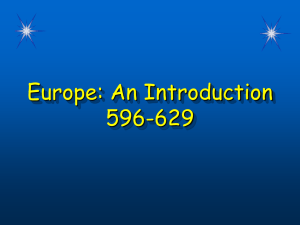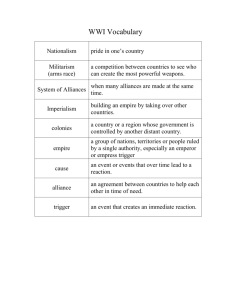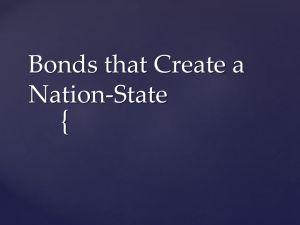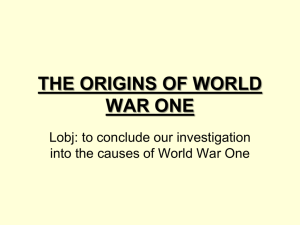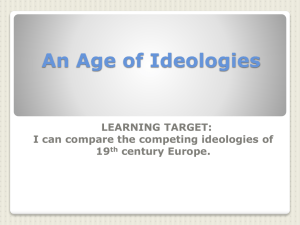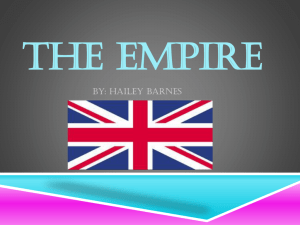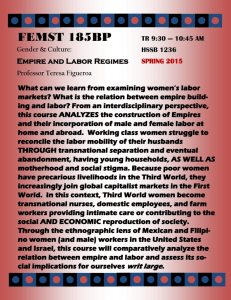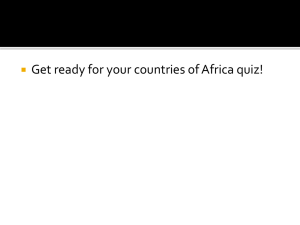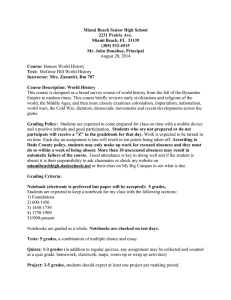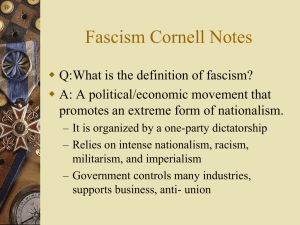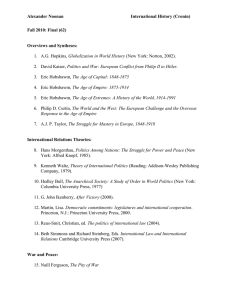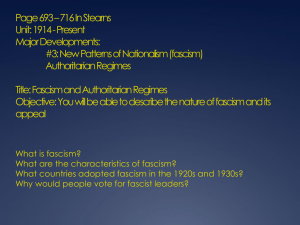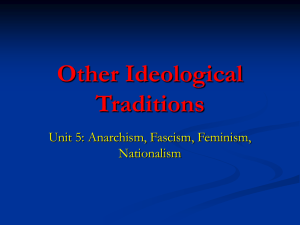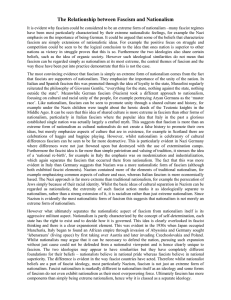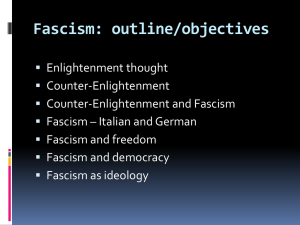World History Final Review
advertisement
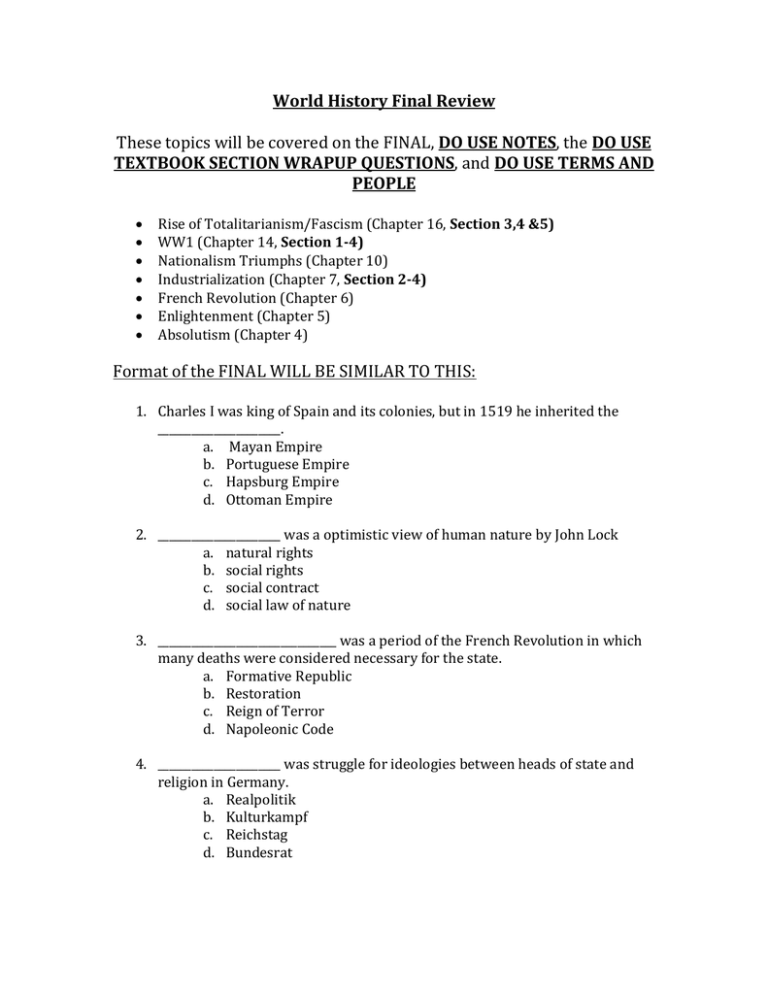
World History Final Review These topics will be covered on the FINAL, DO USE NOTES, the DO USE TEXTBOOK SECTION WRAPUP QUESTIONS, and DO USE TERMS AND PEOPLE Rise of Totalitarianism/Fascism (Chapter 16, Section 3,4 &5) WW1 (Chapter 14, Section 1-4) Nationalism Triumphs (Chapter 10) Industrialization (Chapter 7, Section 2-4) French Revolution (Chapter 6) Enlightenment (Chapter 5) Absolutism (Chapter 4) Format of the FINAL WILL BE SIMILAR TO THIS: 1. Charles I was king of Spain and its colonies, but in 1519 he inherited the ______________________. a. Mayan Empire b. Portuguese Empire c. Hapsburg Empire d. Ottoman Empire 2. ______________________ was a optimistic view of human nature by John Lock a. natural rights b. social rights c. social contract d. social law of nature 3. ________________________________ was a period of the French Revolution in which many deaths were considered necessary for the state. a. Formative Republic b. Restoration c. Reign of Terror d. Napoleonic Code 4. ______________________ was struggle for ideologies between heads of state and religion in Germany. a. Realpolitik b. Kulturkampf c. Reichstag d. Bundesrat 5. _________________ was the political ideology adopted in the 1920s in Italy and involved an authoritarian government utilizing extreme nationalism a. Socialism b. Capitalism c. Communism d. Fascism OPEN ENDED REMEMBER: BE SPECIFIC, GIVE EXAMPLES, EXPLAIN, and FULL SENTENCES. 6. Describe three innovations/technologies used in WW1 and explain their effectiveness. 7. Explain the structure and use of the ‘New Model Army’ during the English Civil War. 8. What was the impact of the ‘Mini Ice Age’ that in the late 1780s on France and the rest of Europe? Explain MATCHING YOU DO NOT NEED TO KNOW EVERY PERSON/TERM FROM EACH CHAPTER 9. Cabinet a. philosopher who used his wit to target the corrupt and hypocritical 10. Cahier b. longtime nationalist who led the liberation of Southern Italy 11. Kaiser c. a group of advisors to the monarch that was made up of officials with royal titles 12. Voltaire d. a notebook that listed grievances 13.Giuseppe Garabaldi e. leader of Germany after 1871, means emperor Key People to Know Miguel de Cervantes Philip II Louis XIV James I Charles I Oliver Cromwell Fredrick II Maria Theresa Catherine the Great Voltaire Adam Smith John Locke Thomas Jefferson James Madison Louis XVI Marquis de Lafayette Robespierre Napoleon Bonaparte Karl Marx Robert Owen Jeremy Bentham Thomas Malthus Otto von Bismarck Giuseppe Garibaldi T.E. Lawrence Benito Mussolini Adolf Hitler Joseph Stalin Key Terms to Know Absolute monarch Divine right Huguenots Edict of Nantes Versailles Limited monarchy Constitutional government Oligarchy Elector Peace of Westphalia Natural law Social contract Laissez faire Baroque Rococo Federal republic Bourgeoisie Bastille Deficit spending Republic Reign of Terror Nationalism Marseilles Napoleonic Code Legitimacy Capital Putting-out system Urbanization Ulitarianism Socialism Communism Social Democracy Kaiser Anarchist Pogrom Militarism Entente Stalemate Total war Armistice Reparations Mandates Fascism command economy russification Third Reich Gestapo
